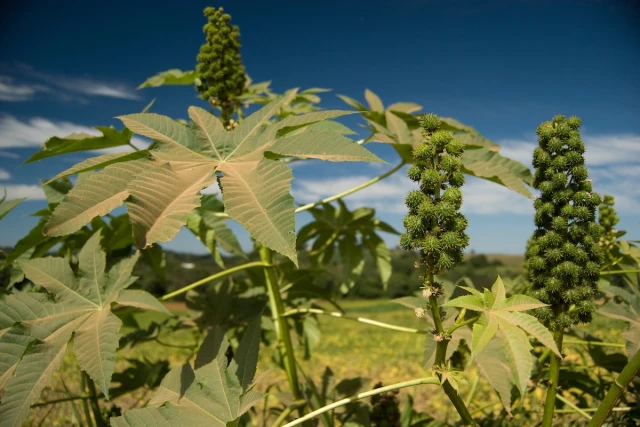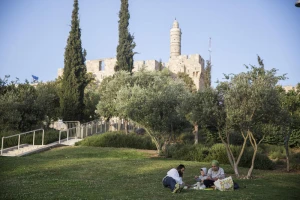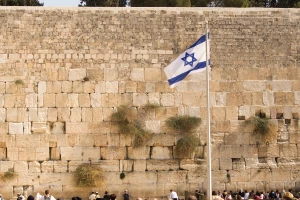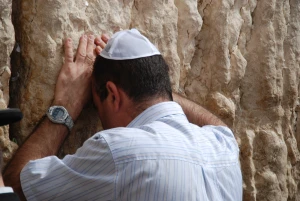What Jonah’s castor oil plant teaches us about God’s mercy on Yom Kippur

Anyone who has been in Israel on Yom Kippur (Day of Atonement) has witnessed a stunning and unforgettable sight: as evening falls and the holy day begins, all cars vanish from the roads, and multitudes of families take to the streets of the cities, freely walking on roads that on any ordinary day are forbidden to pedestrians. The highways fill with children riding bicycles, moving freely without fear.
As Yom Kippur begins, countless Jews flock to synagogues to hear the Kol Nidre prayer. For many, this is the only day of the year they step into a synagogue. Throughout the evening and the following day, special prayers are recited, all centered on asking forgiveness from the Holy One, blessed be He. One book of the Bible is also read in every synagogue on Yom Kippur: the Book of Jonah.
The reason the Book of Jonah is read specifically on Yom Kippur is that it deals with mercy and forgiveness – the very themes of the day. Jonah was sent to the great city of Nineveh to prophesy destruction, but the people of the city repented, and God, in His great mercy, forgave them and withheld the disaster. Since many Jews pray for forgiveness of sins on Yom Kippur, the story of Nineveh gives a tangible example of God’s abundant mercy and His willingness to forgive those who repent.
Yet, at the end of the story, Jonah is so frustrated that he wants to die. He cannot accept God’s mercy toward the people of Nineveh. He wanted to see his prophecy of bloodshed and destruction fulfilled, and he was angry that God forgave the wicked people of Nineveh.
God teaches Jonah a lesson about justice and mercy. After prophesying over the city, Jonah left and sat down east of the city. He built himself a shelter to rest from the heat. The Lord provided a leafy plant to give Jonah shade and ease his discomfort. Jonah was very happy about the plant. But then God sent a worm that chewed the plant so that it withered overnight. The next day, when the scorching wind came, Jonah again wished to die – not out of anger this time, but because of the unbearable heat after the plant’s death.
Then God explained the meaning of the lesson Jonah had just experienced:
“You have been concerned about this plant, though you did not tend it or make it grow. It sprang up overnight and died overnight. And should I not have concern for the great city of Nineveh, in which there are more than a hundred and twenty thousand people who cannot tell their right hand from their left – and also many animals?” (Jonah 4:10–11, NIV)
Jonah, like many of us, prays and longs to see God’s mercy in his life. But when we see that mercy extended to those we dislike or even hate, we are unwilling to accept it. Instead, we prefer to see God’s judgment carried out impartially and without mercy. Jonah’s lesson is a lesson for every believer: just as God can forgive us, He is also willing to forgive our enemies. We should not complain about God’s mercy when it is directed away from us.
And here I want to add something not known to most readers of the Book of Jonah: What was the nature of the plant that grew to shade Jonah, and which the worm destroyed overnight?
In most English translations of the Bible, the plant is referred to simply as a plant. Yet the Book of Jonah specifically calls it kikayon. We know the kikayon in other languages as the castor oil plant. It originates from Africa but spread throughout the Middle East and Asia due to its medicinal properties.
The seeds of the castor oil plant are rich in castor oil, long known as both a toxic and laxative substance. Today, they are used in many industries, including lubricants and medicine.
What is especially interesting about the castor plant in connection with Jonah’s story is its rapid growth. The plant that shaded Jonah grew quickly. We are not told exactly how long Jonah sat in his shelter outside Nineveh, but we understand that the kikayon plant grew fast enough to shade him, and then, when the heat came, it died in a single night.
Indeed, castor plants are well known across Israel, where many grow wild in fields. They can sprout in autumn, and by springtime, they are already tall, leafy plants providing shade. But just as they grow quickly, they also die quickly, and typically live only one season.
In autumn, the season of Yom Kippur, we can see many castor plants along the roadsides and in the fields. These are plants that grew during the winter, and now their seeds have ripened, ready to sprout with the first rain. Farmers usually get rid of castor plants because they are weeds that grow to large dimensions and interfere with crops.
The castor plant is a symbol of God’s great mercy, which is revealed even through a seemingly insignificant plant –one that bears no fruit and is nothing more than a nuisance for the farmers in their fields.

Ran Silberman is a certified tour guide in Israel, with a background of many years in the Israeli Hi-Tech industry. He loves to guide visitors who believe in the God of Israel and want to follow His footsteps in the Land of the Bible. Ran also loves to teach about Israeli nature that is spoken of in the Bible.
You might also like to read this:











